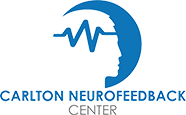According to a recent study released by NICM Health Research Institute, Western Sydney University, current trends in both online gaming and the extended use of the internet at work could lead to changes in brain functions.
Decrease in Focus, Concentration
One of the researchers, Dr. Josh Firth, stated:
“The key findings of this report are that high levels of Internet use could indeed have an impact on many functions of the brain. For example, the limitless stream of prompts and notifications from the Internet encourages us towards constantly holding divided attention — which then, in turn, may decrease our capacity for maintaining concentration on a single task.”
In 2018, The World Health Organization set guidelines for the use of electronic devices (smartphones, tablets, laptops, etc.) for children ages 2-5 for one hour or less per day. Avoiding the potential negative effects could be as simple as ensuring that children spend more time on other crucial developmental activities, such as live social interaction and exercise.
Talk to Your Kids
Combined with this, speaking to children often about how their online lives affect them is also important. This can help in identifying children at risk of cyberbullying, or those with potentially addictive behaviors, allowing for a timely intervention to avoid adverse outcomes.
Many apps and software programs are now available for restricting internet usage and controlling access to smartphones and computers. Parents and caregivers can use these to place some ‘family-friendly’ rules around the time spent on personal devices and the types of content accessed.
More Research Needed
Co-author and director of the digital psychiatry program at Beth Israel Deaconess Medical Center and a clinical fellow at Harvard Medical School, Dr. John Torous, added: “The findings from this paper highlight how much more we have to learn about the impact of our digital world on mental health and brain health. There are certainly new potential benefits for some aspects of health, but we need to balance them against potential risks.”
Reference: Joseph Firth, John Torous, Brendon Stubbs, Josh A. Firth, Genevieve Z. Steiner, Lee Smith, Mario Alvarez‐Jimenez, John Gleeson, Davy Vancampfort, Christopher J. Armitage, Jerome Sarris. The “online brain”: how the Internet may be changing our cognition. World Psychiatry, 2019; 18 (2): 119 DOI: 10.1002/wps.20617


